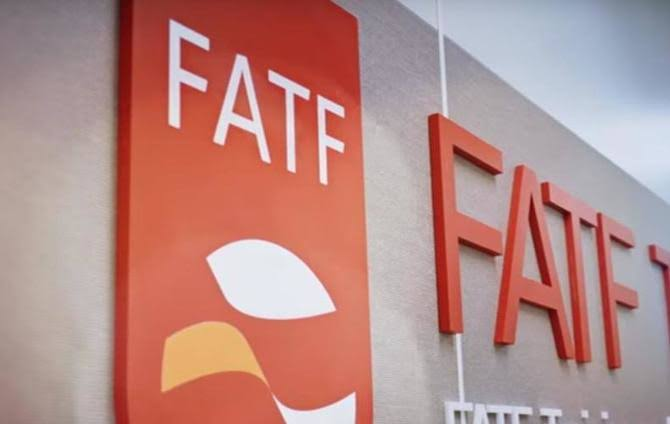Nigeria, on Friday, October 24, 2025, exited the Financial Action Task Force (FATF) grey list.
FATF, a global money laundering and terrorist financing watchdog, formally removed Nigeria from its list of jurisdictions under increased monitoring, often referred to as the “grey list.”
It was gathered that Nigeria exited the FATF grey list following the conclusion of a two-year action plan.
Recall that Nigeria was placed on the grey list in February 2023, following an assessment that highlighted strategic deficiencies in its Anti-Money Laundering (AML), Counter-Financing of Terrorism (CFT), and Counter-Proliferation Financing (CPF) frameworks.
Meanwhile, FATF, on Friday, announced its decision to remove Nigeria from the list. The organisation noted that over the past two years, the Federal Government worked with the FATF and the Inter-Governmental Action Group Against Money Laundering in West Africa to address the identified gaps through legislative reforms, institutional strengthening, and enhanced inter-agency coordination.
Key reforms cited by the FATF include the enactment and enforcement of the Money Laundering (Prevention and Prohibition) Act, 2022, and the Terrorism (Prevention and Prohibition) Act, 2022; the operationalisation of the Beneficial Ownership Register; and improved supervision of designated non-financial businesses and professions.
Announcing that Nigeria has exited the FATF grey list, the Director/CEO of the Nigerian Financial Intelligence Unit, Hafsat Bakari, in a statement, said Nigeria had enhanced the capacity of its intelligence and law enforcement agencies to detect, investigate, and prosecute financial crimes, while deepening international cooperation and intelligence sharing.
She said: “The NFIU is pleased to announce that the FATF, at its October 2025 Plenary in Paris, France, has officially removed Nigeria from the list of jurisdictions under increased monitoring, commonly known as the grey list.
“This milestone marks a historic moment in Nigeria’s fight against serious financial crimes. The delisting of Nigeria underscores the country’s commitment to global standards in combating money laundering, terrorist financing, and proliferation financing.
“Nigeria has demonstrated sustained commitment to financial transparency and integrity. Key milestones include the enactment and enforcement of the Money Laundering (Prevention and Prohibition) Act, 2022, and the Terrorism (Prevention and Prohibition) Act, 2022; the operationalisation of the Beneficial Ownership Register, improving corporate transparency and accountability; implementation of stronger supervisory and preventive measures by public and private sector authorities to prevent abuse of Nigeria’s financial system; increased international cooperation and cross-border intelligence exchange with regional and global partners; and improved supervision of Designated Non-Financial Businesses and Professions.”
She commended President Bola Tinubu for his leadership and thanked key government institutions, the National Assembly, the judiciary, and the private sector for their roles in achieving the milestone.
Tinubu Reacts
Meanwhile, Tinubu has hailed the development, describing it as a testament that his economic reforms are working.
Tinubu in a statement issued by Bayo Onanuga, Special Adviser to the President on Information and Strategy, said Nigeria exited the FATF grey list through the coordinated work of the Nigerian Financial Intelligence Unit (NFIU), in collaboration with the Attorney-General of the Federation and Minister of Justice, the Minister of Finance and Coordinating Minister of the Economy, and the Minister of Interior.
“Without their dedication and sacrifice, today’s success could not have been achieved. I thank them for their efforts and urged other stakeholders to emulate their standards”, President Tinubu said.
According to President Tinubu, Nigeria’s removal from the FATF grey list is “not just a technical accomplishment, it is a strategic victory for our economy and a renewed vote of confidence in Nigeria’s financial governance.
“The exit from the FATF grey list marks the beginning of a new chapter in the nation’s financial reform agenda as Nigeria will sustain the already institutionalised reforms, deepen institutional collaboration and continue to build a financial system that Nigerians and the world can trust”.




